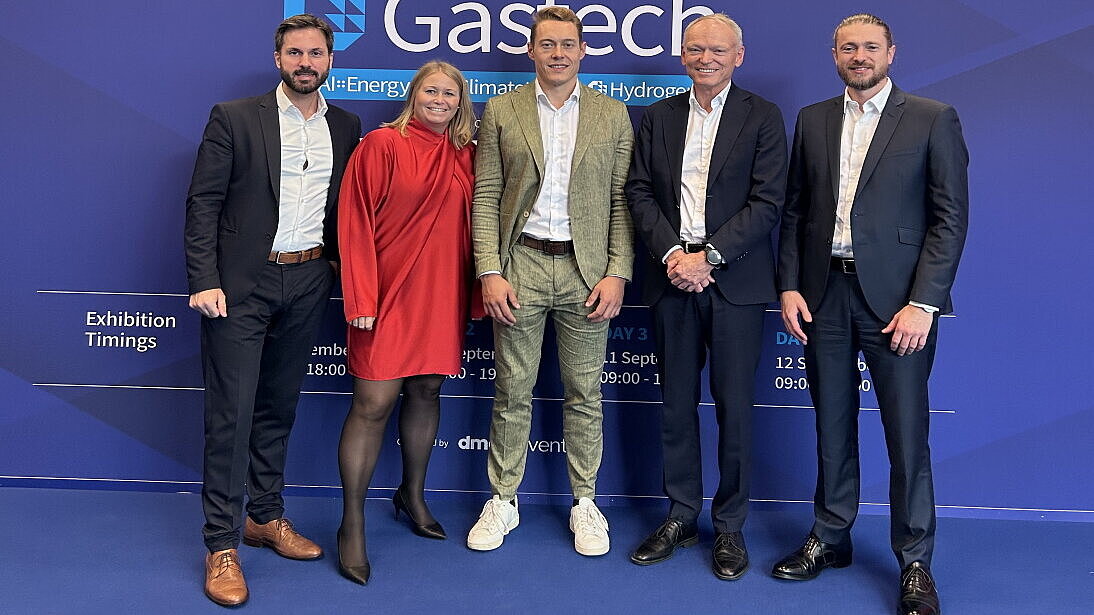
Everllence, ABB and OceanWings join forces on sustainable propulsion concepts

Members of the three companies get together at GasTech (Source: Everllence)
Everllence agreed with ABB and OceanWings on the joint development of an optimised propulsion concept combining advanced electric and wind-assisted technologies, in a Memorandum of Understanding (MoU).
The collaboration will build on Everllence’s and ABB’s DFE+ (Diesel-Electric with variable speed) propulsion system, which enables high engine efficiency at partial loads, operational flexibility through multiple engines, and the potential for future integration of sustainable energy sources such as batteries and fuel cells.
With increasing regulatory and financial pressure to decarbonise, the partners aim to demonstrate the benefits of pairing wind-assisted propulsion systems (WAPS) with DFE+. OceanWings’ rigid wingsail technology features Adaptive Trimming, which continuously optimises sail positioning for each vessel’s aerodynamic profile.
“LNG carriers sail fast and spend typically 70% of their time at sea. This is ideal for harnessing wind and the full potential of OceanWings rigid wingsails,” said Romain Grandsart, COO of OceanWings. “Combined with optimised propulsion, including a DFE+ highly efficient variable-speed concept engine, this unlocks high double-digit fuel savings and greenhouse-gas emissions reduction.”
Rune Lysebo, head of Strategic Market Development at ABB Marine and Ports, said: “The flexibility of our hybrid electrical propulsion system is a good match with the variable power contribution from the wind. By utilising ABB’s advanced power and energy solution, we are able to optimise the operational efficiency of the vessel.”
Dominik Thoma, global manager LNG Cargo at Everllence, added: “While WAPS introduces highly variable propulsion demand due to fluctuating wind conditions, DFE+ propulsion offers precise load control and operational flexibility, making it exceptionally well-suited to harness the variable and intermittent power contributions of wind-assisted systems.”
The initial focus will be on a next-generation LNG carrier, with future applications expected across the cargo segment. The partners anticipate the concept will deliver measurable reductions in emissions, operating and capital costs for future vessel designs.
